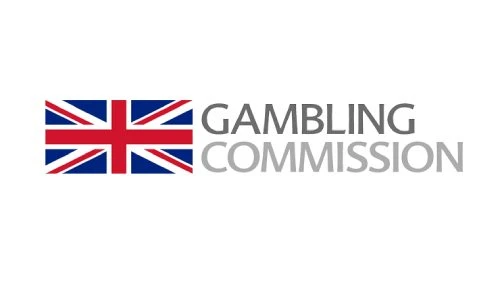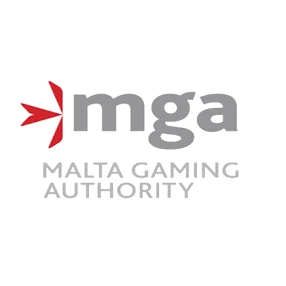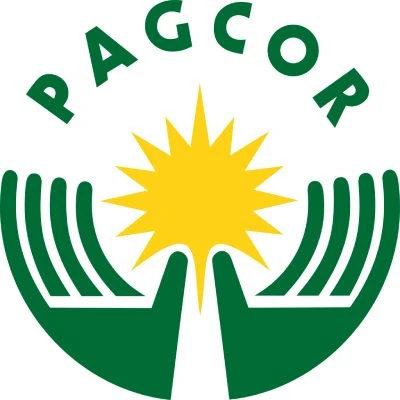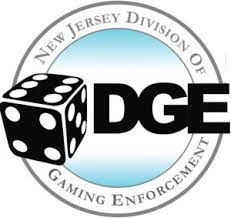Player Rights
I think the level of awareness regarding players’ rights in the gambling industry can vary among individuals. Generally, many punters might not be aware of their rights. From personal experience, I have been involved in gaming for several years, and it took me long before I even thought of finding out whether players had rights. I have also interacted with other players who had no idea about their rights. This might be due to the inconsistency of information pertaining to players’ rights. Gambling operators also don’t prioritize telling users about their rights.
All licensed casinos must adhere to strict standards and regulations that guard their conduct in relation to dealing with clients. These laws vary across various jurisdictions. They can be divided into player rights and casino rights. Player rights, which are our main focus today, include all the laws intended to protect gamblers from any form of harm resulting from their association with licensed operators.
Things such as player privacy, secure payment options, and addiction help are covered in this section. On the other hand, casino rights are laws that state how an operator should run its business, including the protection it has from players or other industry players that may try to use unfair practices to exploit it in any way. The United Kingdom Gambling Commission (UKGC) for example, provides that all iGaming companies must guarantee the preservation of players’ private information and their payment transaction details safely. Such companies must also ensure they have sufficient tools to protect gamers from any harm related to wagering. This is in addition to self-exclusion and cooling off times. We will dive deeper in the next sections. The contractual language used must be fair, open and easy to understand and must not cause any form of ambiguity.
Player Confidentiality and Banking Protection
One of the most basic rights is the right to privacy. Information about how data should be readily accessible on an operator’s website. Online casinos must also commit to protect their players’ information from third parties. Where such companies need to collect data, they must explain which information they need, and how they are going to process it. Legal justification for this process must be provided too. Banking information should also be protected and gamblers must be allowed to select their most preferred payment methods out of the ones supported. Customers should be given clear information about their accounts, and all money activities such as deposits and withdrawal processes, including fees involved and transaction periods. It’s also important to employ security systems like the SSL-encryption standard for client information protection and privacy.
Fund Separation
All licensed operators under the UKGC, Curacao Gambling Commission, Malta Gaming and Authority and many other regulations must safeguard their client funds and keep them separate from company assets. This helps safeguard players from losses in case the company goes bankrupt. Most regulators don’t control or store client funds. This is why they mandate that operators open separate accounts to track player money. Segregated accounts also help a company easily monitor and account for player funds and prevent a situation where the company may start spending gamblers money to fund operations. In addition to that, there must be clear procedures to ensure clients will receive their money in case the company ceases to operate.
Responsible Gaming
Every player has the right to be informed of the risks of gambling. Operators must have a dedicated section where they explain the dangers of gambling and offer resources to help you stay safe from such risks. The casino must urge players to wager responsibly and create an environment to facilitate responsible behaviors. You have the right to set limits on your wagering in terms of the money and time you are willing to spend in gaming. If you feel that you are starting to lose it and need to exit the scene, the operator must be able to offer you self-exclusion.
UKGC Player Rights

The United Kingdom Gambling Commission is the strongest gaming authority in Europe. It oversees all forms of gaming including online casinos, sports betting, and lotteries. It reinforces the importance of player protection through extra local laws. For example, it requires that player-operator contracts must be fair and clear. It further enforces rules to protect the underage by requiring KYC verification. Online gambling advertisements and factors such as bonus offers must be fair, transparent and not misleading. Operators must also provide enough responsible gambling tools and protect player banking information and personal data.
MGA Player Rights

The MGA player rights are quite similar to those of the UKGC. The primary aim is to avert and stop any criminal activity as well as to protect gamblers vulnerable to addiction. It revolves around responsible gaming policies, safe gambling tools, fairness, and data protection. Minors must not be allowed to gamble. Players must be allowed to take breaks and be given access to resources that can help them from falling into addiction. Casinos must have limits to control how much players spend. Information about payment must be clear including how long it takes for a gambler to access their wins. They could include wager or transaction limits. The MGA is always ready to intervene where there is a dispute between players and operators.
US Player Rights

When it comes to internet gambling rules and regulations, the United States has a complex and ever-changing landscape. Players in states where online gambling is permitted have the right to know that the games they are playing are fair and that their personal and financial information is protected. To protect player information, operators must deploy cutting-edge technology. To ensure that their games are fair, they must use random number generators. Gamblers must be permitted to set gambling boundaries and seek help if they become harmed. It is crucial to note, however, that even in states where online casinos are permitted, players must be at least 21 years old.
Russia Player Rights

The rules governing online gaming in Russia are very tight. The government of Russia approved a law outlawing online casinos back in 2006. However, there are still a few offshore ones that accept Russian players, like mBit, BitStarz, and Winz.io. In such a situation, Russian players who choose to play at these casinos are subject to the laws that apply to them. They might not, however, enjoy the same level of legal protection as gamers in nations where online gambling is regulated. For example, if there is a problem with an offshore internet casino, resolving the issue through legal channels may be challenging. While there are no explicit restrictions in Russia governing responsible gambling, players can seek assistance and support from organizations such as the National Council on Gambling Problems.
China Player Rights

Online gambling is prohibited in China, as it is in Russia, and the authorities have created departments to blocklist online casinos and monitor player transactions to ensure they are not being used for offshore wagering. Players who choose to gamble online in China using VPNs and cryptocurrency payment methods do so at their own risk and may face legal consequences, including up to three years in prison, if found.
Given that online gambling is banned in China, there is no clear legislation governing player rights. However, if you play on an offshore website, you have access to all of the rights granted by the relevant offshore authority, such as responsible gambling, the right to fairness, and secure payments. If a licensed casino is not in compliance, you may report it to its regulator. However, given that gambling is not tolerated in China, conflict resolution may be difficult. Chinese citizens who reside in nations where internet gaming is permitted are safe to gamble because they will be covered by these nations’ strict laws.
Japan Player Rights

Although there have been conversations of legalizing online gambling in Japan, it is currently unregulated. In Japan, the only legal forms of gambling are government-run lotteries and certain sorts of permitted sports betting. Currently, certain offshore online casinos accept Japanese players. However, gamblers who choose to play on these sites may not have the same legal protection as those who play in countries where online gambling is permitted. They may, however, be protected to the extent permitted by the offshore rules under which the casinos operate. These authorities can assist players. MGA, for example, provides offshore licenses and, where necessary, mediates between players and operators who have its license.
Philippines Player Rights

PAGCOR oversees and regulates internet gaming operations in the Philippines. There are some offshore licensed sites providing services in this area too. PAGCORD subjects casinos to tight rules and regulations in order to protect customers. Players have the right to reasonable odds, which must be provided before the game begins. Operators must specify how player data is processed and safeguarded. All transactions must be protected by the latest technology, and payment information must never be collected and shared with third parties. To combat money laundering, internet casinos must keep detailed records of all transactions and notify PAGCOR of any questionable behavior.
India Player Rights

The regulations governing online gambling in India are fairly intricate and vary by state. While there is no federal law that outlaws online gambling, local states have their own gaming rules and restrictions. Online gambling is entirely legal and regulated in some states, but it is outlawed in others. Gamers have similar rights to countries like the Philippines where it is permitted. They must be allowed to select their preferred payment option based on what is supported. The available channels must be secure and safeguard customer data against threats such as information leaking to hackers. Operators must encourage responsible gambling and limit underage gambling.
Spelinspektionen Player Rights

The gambling authority in Sweden is called Spelinspektionen. Despite being quite new, it has achieved major advancements in player protection. The main focus is on responsible gaming. There is currently a 5,000SEK deposit cap in place for participants. A 3-second break is also required between each spin on the slot machine. Operators must also provide players the option to opt-in or out and provide tools for responsible gaming. Gaming by minors is prohibited.
NJ Division of Gaming Enforcement Player Rights

The state of New Jersey’s gaming sector is governed and supervised by the NJDGE, the New Jersey Division of Gaming Enforcement. It grants players a variety of rights, most of which are based on the concept of fairness. Players have the right to engage in open, thoroughly examined games that ensure fairness and randomness of results. Operators covered by this rule are required to provide responsible gambling tools to help reduce gambling-related harm. The state registration must include players who choose self-exclusion in order to facilitate the closure of all of their gaming accounts at both online and brick-and-mortar casinos.
Conclusion
As the popularity of online gambling has grown significantly over the years, operators now have a greater obligation to make sure that their players are treated fairly and with respect. Knowing and comprehending one’s rights is one of the cornerstones of player protection. Players have a right to anticipate that the games they play will be impartial and fair, and that the results will be generated using a reputable random number generator.
There must be fair terms and conditions, including the wagering requirements, bonus terms, and withdrawal procedures. Players should have quick access to customer assistance by phone, live chat, email, and other channels in the event of any problems. If players feel that their rights have been infringed upon or they have been treated unfairly, they can file a complaint with the relevant authorities or organizations. Last but not least, as gambling ought to be a fun and exciting experience, players shouldn’t be abused or exploited. By knowing their rights and holding operators accountable, they can enjoy a safe and fair online gambling experience.
FAQs
Can a casino refuse to pay out?
Generally speaking, a respectable and legitimate online casino shouldn’t refuse to pay out players who genuinely won prizes. There are exceptions, where gamblers breach certain terms. Players should thoroughly read the terms and conditions of an online casino and comprehend the requirements in order to prevent any circumstances that might result in a payout being withheld.
How to check if an online casino is licensed?
The license information for a casino must always be posted at the bottom of the homepage or in the “About Us” section. You may also verify the status of a license on the website of the gambling regulator.
How to find out about casinos’ terms and conditions?
To learn more about a casino’s terms and conditions, go to its website and look for a link or button labeled “Terms and Conditions” or “T&C.” This link is typically found near the bottom of the homepage or in the menu bar. When you click the link, you’ll be sent to a page that details the casino’s terms and conditions.




